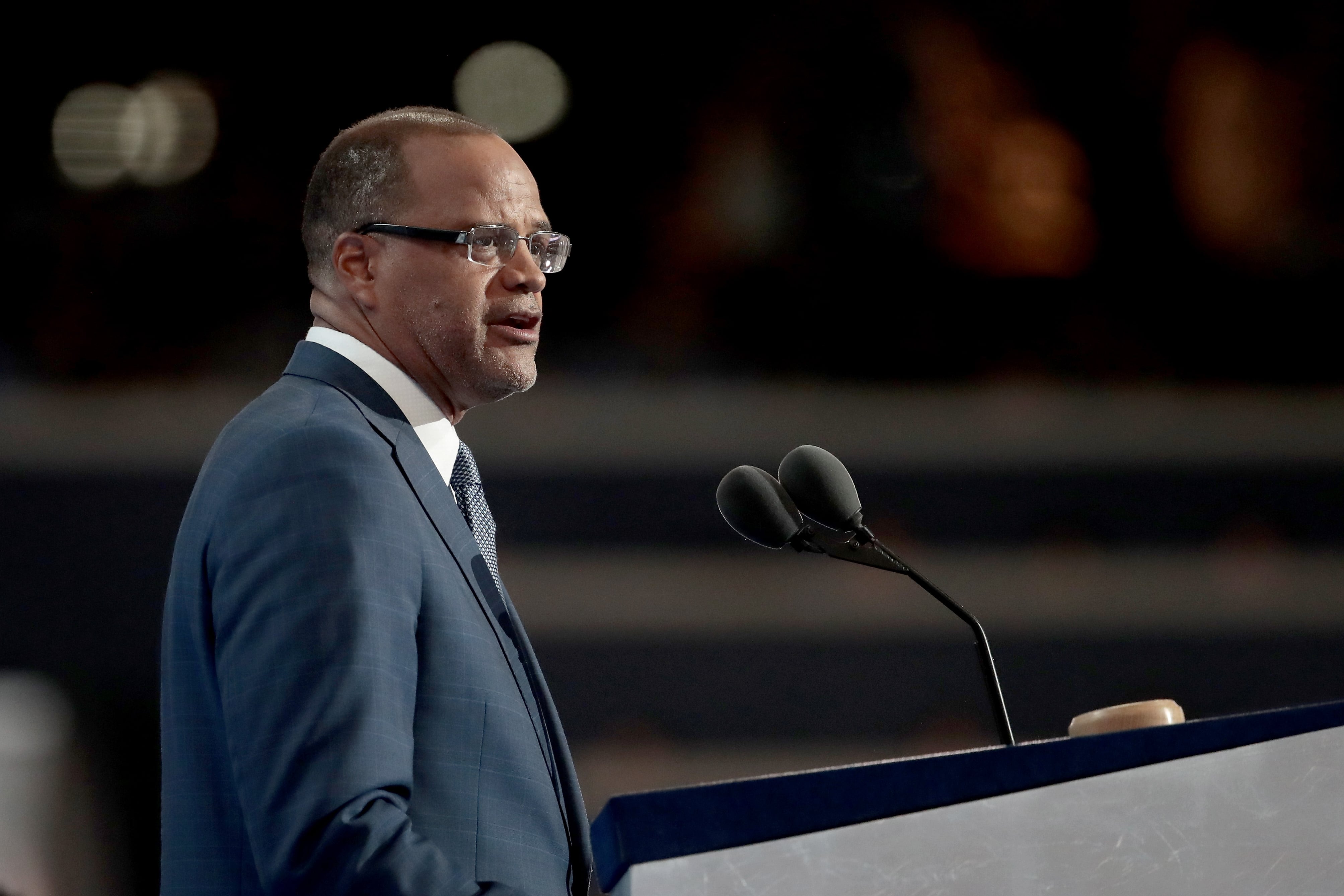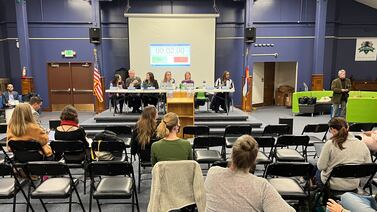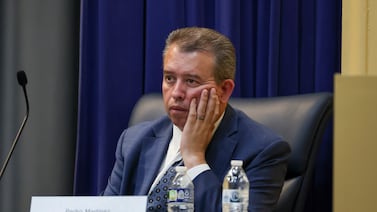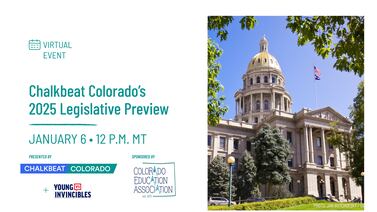David Banks, a former principal who helped launch a small network of public schools that primarily serve boys of color, will be the next leader of the nation’s largest school district, Mayor-elect Eric Adams is expected to announce Thursday.
A trusted education advisor to Adams during his campaign, Banks was widely expected to become the New York City schools chancellor, and Adams did not appear to seriously consider many other candidates for the role.
Banks currently helms the Eagle Academy Foundation — which supports five schools in New York City and one in New Jersey — and will assume his new role when Adams takes office on Jan. 1.
Banks, who is moving back to the city from New Jersey this month, won’t have much time for a honeymoon. He takes the reins amid a third consecutive school year disrupted by the coronavirus pandemic, as virus cases are rising, and the threat of the omicron variant looms. He will immediately face questions about how he will approach health and safety rules and whether the administration will make any adjustments. Adams has already signaled he is open to mandating vaccines for students, an idea Mayor Bill de Blasio has resisted.
Arriving in the middle of the school year, Banks will be charged with carrying out pieces of the previous administration’s academic recovery program to help catch students up, including the rollout of after-school and Saturday sessions for students with disabilities, and figuring out how to realize Adams’ promise to improve support for students with reading challenges.
Banks will also have to help make decisions about whether pandemic-era changes to school admission policies will stay in effect, including de Blasio’s proposed overhaul of gifted and talented programs. (Adams has said he supports expanding gifted programming rather than curtailing it.)
There are also big-picture questions about how much room Banks will have to maneuver. De Blasio earned a reputation for micromanaging the education department, and it remains to be seen whether Adams will give his chancellor more leeway to make decisions.
Here are five things you should know about Banks that may inform what kind of schools chancellor he will be:
Banks’ career pivoted from education to law — and then back to education
Banks, 59, has a long track record as an educator stretching back to 1986 when he began as a teacher at P.S. 167 in Crown Heights, a post he held for five years before becoming the school’s dean of students for a year, according to his spokesperson. (The school has since closed.)
Although he attended law school and briefly pursued a legal career, he left the field to become an assistant principal and was tapped in 1997 to launch a school. That new school — the Bronx School for Law, Government, and Justice — was later helmed by current Chancellor Meisha Porter. Banks was one of her mentors.
He started a network of public schools for boys of color
Banks’ profile rose during the Bloomberg administration, which was aggressively pursuing an education reform agenda — one that was gaining traction across the country — that called for closing low-performing public schools and opening new ones and promoting the rapid growth of charter schools.
Against that backdrop, Banks helped launch the first Eagle Academy school.
The school opened in 2004 and was designed to serve young men of color, an explicit effort to reduce their odds of dropping out or getting tangled up in the criminal justice system and improving their chances of earning a college diploma.
It was also part of the Bloomberg administration’s small schools movement, which strove to replace large and low-performing high schools with smaller ones that could offer a more personalized experience. Although charter schools were beginning to proliferate with Bloomberg’s support, Banks has said he was committed to opening the schools under the auspices of the school district using unionized teachers.
Since 2008, Banks has run the Eagle Academy foundation, which offers training and other support to the six schools.
Banks was an early proponent of culturally responsive education
Eagle Academy — which eventually grew to include five schools in New York City and another in Newark, N.J. — was an early example of practices that are now in vogue in progressive circles, including infusing schools with culturally responsive curriculum and practices that explicitly celebrate Black and brown people.
The schools embraced strategies to reach boys of color who have traditionally not been well served by the city’s public schools, including extended school days to keep students engaged and out of trouble after regular hours. The schools also run mentoring programs and cultivate relationships with business leaders to serve as role models and expose students to career possibilities they may not have considered.
“They were way ahead of their time in terms of working on anti-racist approaches to education and doing it in a real, thoughtful, and sustained way,” said Shael Polakow-Suransky, who was a senior education official in the Bloomberg administration and got to know Banks when they were both principals in the Bronx.
Those approaches have won praise from some parents, though there are also signs of uneven success. Three of the five New York City schools are considered among the lowest performing in the state due to low achievement and growth scores at their middle schools. And some campuses have higher-than-average rates of chronic absenteeism. Still, the New York schools have generally posted graduation rates that are higher than the city average.
Banks has little experience running a big bureaucracy
As the head of the Eagle Academy Foundation, Banks helps support six schools but does not directly supervise them. Come January, he’ll be directly responsible for 1,600 schools.
Unlike most other chancellors appointed in the last 20 years, Banks does not have experience running a school system — or a big bureaucracy — nor has he spent years climbing the ladder within the education department.
Some previous school chiefs have had little education policy experience but had high-level government management positions, including Joel Klein, a lawyer who ran the antitrust division of the U.S. Department of Justice and served as chancellor under Bloomberg.
More recently, de Blasio has selected leaders who have either had experience running big city school systems (Richard Carranza) or spent years rising up the ranks of New York’s education bureaucracy (Carmen Fariña and Meisha Porter).
Banks and Adams’ education policy vision has not yet crystalized
Banks will lead the city’s nearly 1 million students at an unusually tumultuous moment, but there are also new resources the administration can tap: The city is flush with nearly $7 billion in relief funding for education with more funding likely to come from the state.
Adams has said he’s interested in extending the school year over the summer — something de Blasio has now embraced — and expanding access to affordable child care. But he has not zeroed in on a singular priority, such as de Blasio’s successful push for universal pre-kindergarten.
For his part, Banks has stressed making better use of digital learning tools to give students access to experiences and educators outside their classrooms, investing in culturally responsive history curriculums, and moving away from an “overreliance” on standardized tests.







